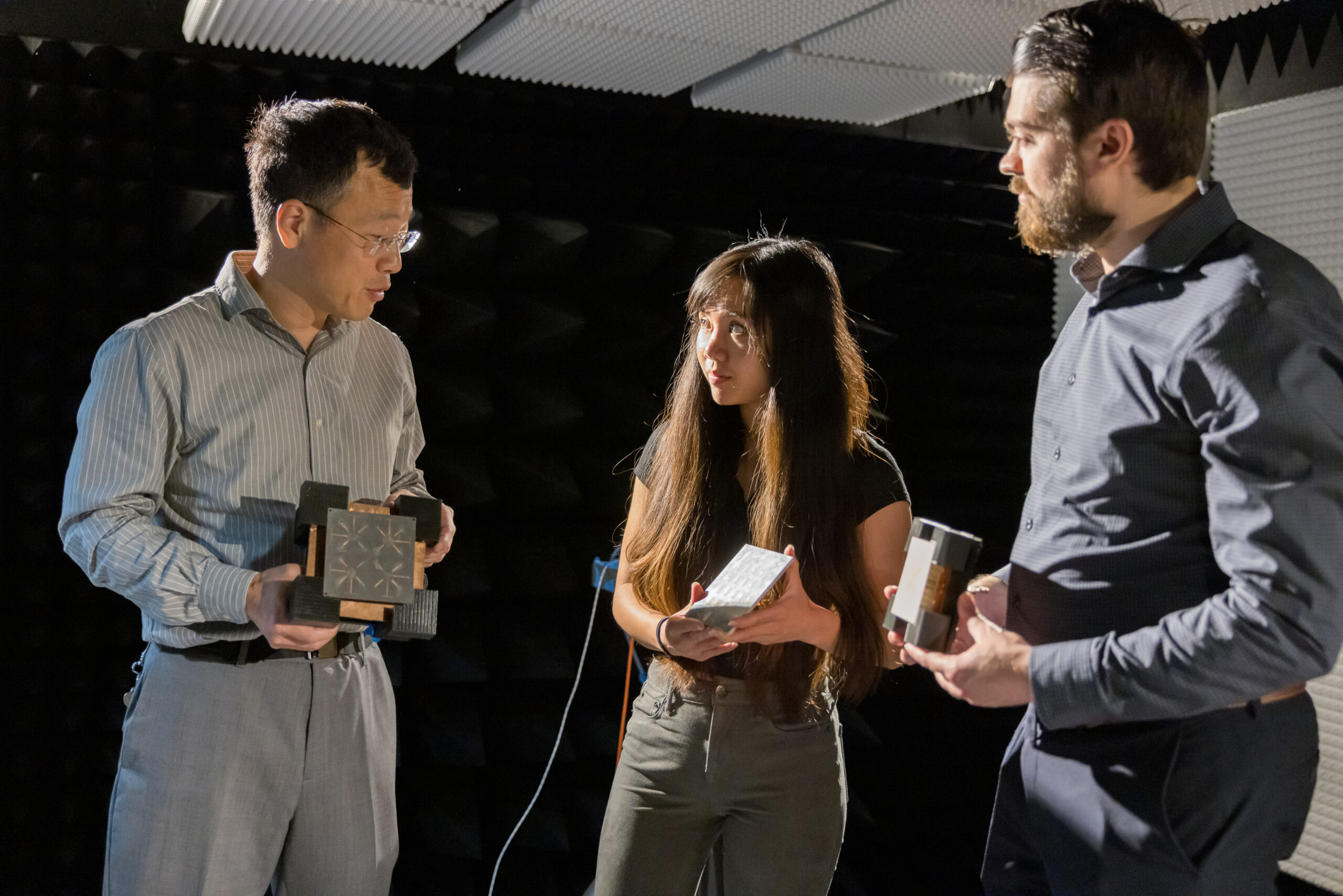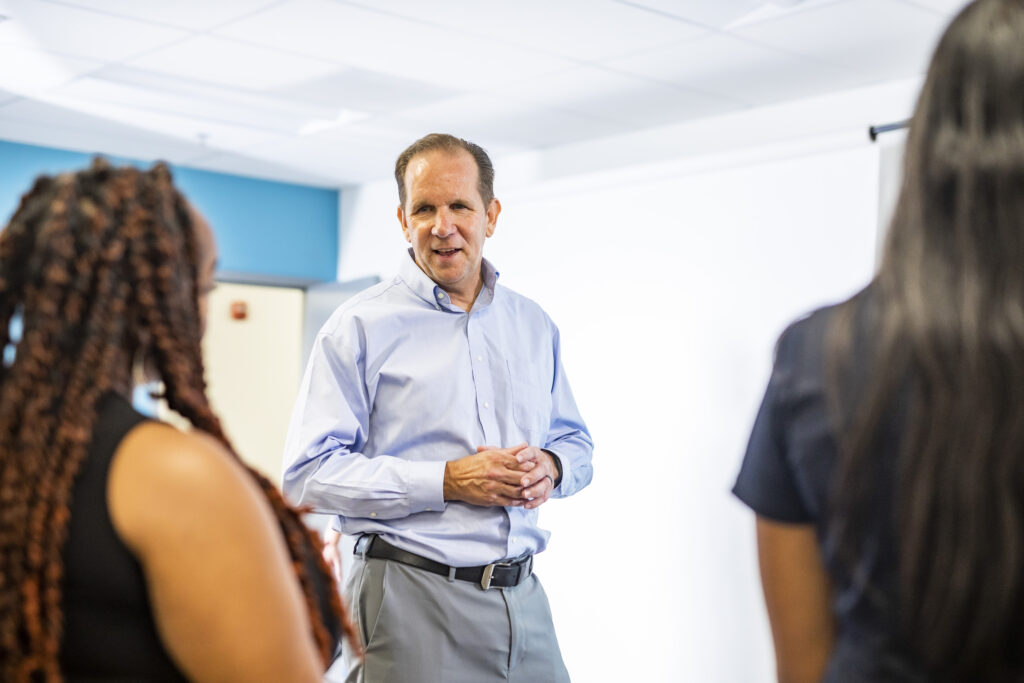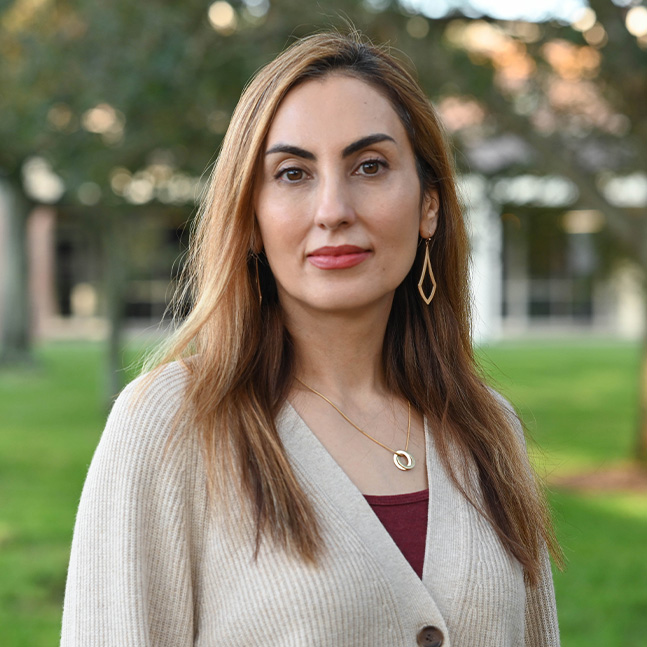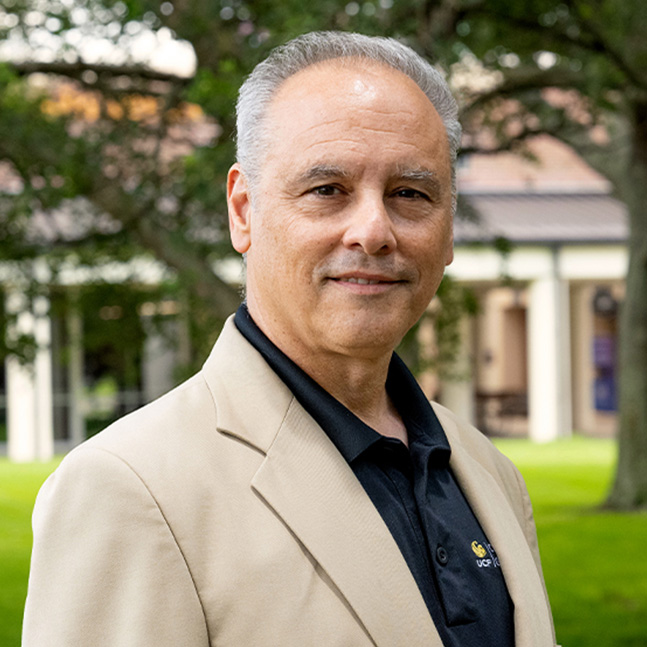Graduate Enrichment Mentoring Initiative
GEMiNiGraduate Enrichment Mentoring Initiative

At the University of Central Florida, we recognize that effective mentoring is a cornerstone of graduate student success and faculty impact. The Graduate Enrichment Mentoring Initiative (GEMiNi) is designed to support and enhance the mentoring relationships that shape the academic, professional, and personal growth of our graduate students. Through resources, guidance, and programming designed for both mentors and mentees, GEMiNi empowers faculty to engage in thoughtful, individualized, and impactful mentoring while equipping graduate students with the tools they need to thrive. GEMiNi fosters a culture of mutual respect, transparent communication, clear expectations, and shared commitment to academic and professional growth, enhancing graduate education and creating rewarding mentoring experiences for both faculty and students.
As GEMiNi continues to grow, we envision a structured, multi-tiered mentoring model designed to support graduate students at every stage of their academic and professional journey. This expanded framework will complement faculty advising by creating additional layers of support and connection:
- GEMiNi Constellation – Senior graduate students mentoring junior peers to foster collaboration, community, and peer-guided learning.
- GEMiNi Supernova – Postdoctoral scholars mentoring graduate students in advanced research skills and career development.
- GEMiNi Starlight – Faculty mentors (distinct from the student’s advisor) offering guidance on academic growth, professional planning, and broader scholarly engagement.
This holistic model will help cultivate mentoring relationships across multiple levels of experience, enhancing the mentoring culture at UCF and reinforcing our commitment to graduate student success.

Mentoring Guidance for Your Role at UCF
Faculty Resources
Mentoring graduate students is both a privilege and a responsibility that enhances faculty impact, supports student success, and strengthens research and academic programs. Yet many faculty members enter mentoring roles without formal preparation. GEMiNi offers practical, evidence-based resources to help faculty refine their mentoring practices, navigate complex situations, and support students holistically. From setting expectations and fostering professional growth to promoting well-being, these tools are designed to help faculty build more effective, inclusive, and sustainable mentoring relationships. Whether you are a new advisor or a seasoned mentor, this section provides guidance to support your continued growth as a mentor and contributions to a strong graduate community.

GEMiNi Graduate Mentoring Plan Template
The GEMiNi Mentoring Plan Template helps faculty articulate a structured and thoughtful approach to mentoring graduate students while also fulfilling NSF’s requirement for a formal graduate student mentoring plan. It outlines key areas, including training in research, teaching, professional development, and career preparation. Importantly, it integrates UCF-specific resources, including professional development programs, grant writing support, and skill-building workshops available through the College of Graduate Studies, the Faculty Center for Teaching and Learning, and other campus partners. Faculty can customize the template to reflect the unique needs of their students and research environments. By using this adaptable tool, faculty can create mentoring plans that are not only compliant but also deeply supportive of student growth and success.
Other Recommended Readings on Mentoring
What makes PhD students happy? Good supervision,” Nature, vol. 646, p. 775, Oct. 22, 2025. doi: 10.1038/d41586-025-03416-7
“Redefining Mentoring in Higher Education,” white paper, National Center for Faculty Development & Diversity (NCFDD) & Collaborative on Academic Careers in Higher Education (COACHE), Apr. 2025.
Tools for Graduate Students
Mentorship is a vital part of your graduate journey, shaping your academic success, professional development, and overall well-being. Strong mentoring relationships do not happen by chance; they require active participation and clear communication from both mentor and mentee. You will find tools here to help you build and maintain meaningful mentoring relationships. The guidance includes understanding faculty roles, setting expectations, giving and receiving feedback, protecting your mental health, and developing a diverse mentoring network that aligns with your personal and professional goals. Whether you’re just beginning your graduate studies or seeking to strengthen your support system, these resources are designed to help you thrive.

Individual Development Plan
An Individual Development Plan (IDP) is a structured tool that helps graduate students and postdoctoral researchers to:
- Assess their strengths, weaknesses, and career goals.
- Set short- and long-term objectives for research, skill development, and professional growth.
- Identify mentorship, resources, and training to support their career trajectory.
- Track progress and adjust goals based on feedback and evolving interests.
We encourage all students to develop and regularly update their IDP in collaboration with mentors. While UCF does not mandate a specific format, several established IDP tools are available to guide your process, including those tailored to STEM, social sciences, and humanities. Below are some well-established IDP tools that students can use to guide this process:
- Imagine PhD is a career exploration and Individual Development Plan tool for the humanities and social sciences. It is a free online resource that facilitates career exploration by inviting users to evaluate and reflect on their skills, values, and interests and to investigate related career opportunities.
- myIDP is an interactive IDP tool developed by AAAS for Science, Technology, Engineering, and Math (STEM) disciplines.
- Disciplinary associations such as the American Psychological Association and the American Chemical Society offer IDP resources.
In addition to these external resources, students may use the UCF GEMiNi IDP Template.
AGREE: Advisor–Grad Student Relationship Expectations and Engagement
Clear and proactive communication between graduate students and advisors is essential for a successful mentoring relationship. The AGREE template provides a structured framework for discussing and documenting shared expectations across key areas, such as communication practices, research responsibilities, authorship, meeting frequency, timelines, and lab culture. It encourages open dialogue from the outset of the advising relationship and serves as a living document that can be revisited and updated as needed. By clarifying mutual responsibilities and fostering trust, AGREE helps prevent misunderstandings and promotes a more productive, respectful, and supportive mentoring experience for both faculty and students.
GEM-NET (GEMiNi Mentoring Network)
Recognizing the critical role mentoring plays in graduate student success, belonging, and well-being, the Graduate Enrichment Mentoring Initiative Mentoring Network (GEM-NET) strengthens UCF’s graduate ecosystem through structured, multi-level mentoring relationships across three tiers:
- Peer-to-Peer Mentorship (Constellation): Senior graduate students mentor junior graduate students, fostering research collaboration, peer support, and academic confidence.
- Postdoctoral-to-Graduate Student Mentorship (Supernova): Postdoctoral scholars guide graduate students in advanced research practices, professional development, and career preparation.
- Faculty-to-Graduate Student Mentorship (Starlight): Faculty members, separate from a student’s primary advisor, offering diverse academic and professional perspectives.
GEM-NET fosters meaningful connections between UCF graduate students and mentors who support students beyond the classroom. Whether navigating challenges, building confidence, or identifying trusted allies, mentors provide thoughtful guidance that helps students thrive.
How GEM-NET Mentoring Works
- Potential Mentors Join the Network: Faculty, postdoctoral scholars, and senior graduate students complete the Mentor Registration Form to share their contact information and identify mentoring topics they are willing to discuss with graduate student mentees.
- Interested graduate students complete a Mentee Intake Form outlining the areas where they seek guidance, support, or skill development.
- The GEM-NET director matches mentors and mentees by reviewing submitted intake forms and aligning mentoring expertise with student needs.
Next Steps
Kickoff Meeting
- Mentors and mentees meet at a program kickoff meeting.
- The GEM-NET director outlines the mentoring structure, program goals, and participant expectations.
- Each mentor–mentee pair completes a mentoring agreement that defines meeting frequency (recommended monthly) and preferred format (in-person or virtual).
- Based on the mentee’s needs and the mentor’s expertise, each pair identifies three to four main topics to guide biweekly or monthly discussions. Selected topics are shared with the GEM-NET director to help track program focus areas and outcomes.
Mentoring Meetings
- Monthly meetings focus on one selected mentoring topic.
- Every three months, mentors and mentees submit a brief progress report to GEM-NET summarizing topics discussed, progress made, and any challenges encountered. A reporting form will be provided.
Program Support and Resources
- Each semester, GEM-NET hosts at least one collaborative workshop or panel in partnership with the College of Graduate Studies, Graduate Student Life, and relevant UCF offices.
- Sessions may address mentoring best practices, effective communication, mental health and well-being, time management, and professional development.
Program Completion and Recognition
- A final meeting will bring mentors and mentees together to reflect on lessons learned and share program feedback.
- Certificates of completion will be issued to both mentors and mentees.
- Digital copies of certificates will be shared with mentors and their supervisors (e.g., advisor or department chair) to acknowledge and encourage recognition of their service and commitment.
Workshops and Events
As part of its future offerings, GEMiNi will host workshops and events designed to enrich the mentoring culture at UCF. These sessions will provide opportunities for faculty and graduate students to engage in reflective dialogue, share best practices, and strengthen their mentoring skills. Programming may include interactive sessions, panel discussions, and invited speakers with expertise in mentoring and graduate education. More information will be shared as these offerings are developed.
GEMiNi Committee Members

Nazanin Rahnavard
Professor, Electrical and Computer Engineering
Faculty Fellow, College of Graduate Studies
